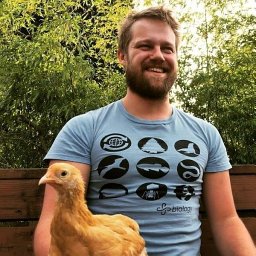Matthew Chmielewski is a community ecologist focused on understanding how changes in spatial processes influence species interactions and community assemblages. His research combines extensive field work and natural history observations with theory-driven computational methods across a wide variety of systems. Matt earned a dual B.A. in Biology and Environmental Science Policy and a M.A. in Biology at Clark University. His master’s degree focused on the study of population ecology of Aedes albopictus, a mosquito species introduced to the U.S. He completed a dissertation at Portland State University studying avian-bryophyte dispersal networks and the ecology of bryophytes in extreme environments, followed by a postdoc studying the role of climate change in shifting sex-specific resource use in the endangered butterfly Argynnis idalia idalia. He has conducted field work in a wide array of ecosystems spanning four continents and Oceania. This work has brought him to the Democratic Republic of Congo, Chile, Panama, Saipan, the Pacific Northwest of the United States, and the Antarctic peninsula. He is currently a postdoc at the University of Louisville where he is studying how lightning-induced tree gaps differ from other drivers of gap formation in Panama in conjunction with the DEAD Lab. In addition to his research, Matt is enthusiastic about teaching, international collaboration, data literacy, and addressing equity imbalances in academia. He’s especially interested in how he can use his experience as a first-generation citizen and college student to advise similar demographics.
 DEAD Lab
Disturbance Ecology and Decomposition
DEAD Lab
Disturbance Ecology and Decomposition
